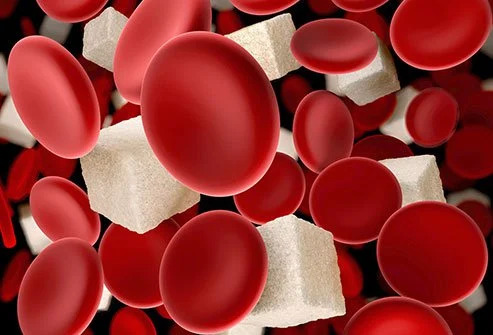Effective Strategies to Manage High Blood Sugar
High blood sugar, a common concern in diabetes, can pose serious health risks if left unaddressed. If you’ve recently received a high blood sugar diagnosis, fear not; there are effective methods to manage it besides insulin therapy, as prescribed by your doctor. Dr. Elena Christofides, an expert in diabetes and metabolism, reassures, “Having type 2 diabetes is not your fault; there’s no moral failing here.” Above all, be patient with yourself. High blood sugar didn’t develop overnight, but it’s manageable with consistent effort. Let’s uncover the secrets to bring those levels down!
1. Weight Loss Focus
Extensive research has demonstrated that even modest weight loss can significantly impact blood sugar levels. Dr. Rita Kalyani recommends, “Initiate weight loss, even if it’s just a little.” The Diabetes Prevention Program, a comprehensive study targeting diabetes prevention among high-risk individuals, revealed that participants engaging in 30 minutes of daily physical activity and shedding at least 7% of body weight reduced their risk of developing type 2 diabetes by an astonishing 58%. The mechanism is clear: shedding excess weight through a healthy diet and regular exercise enhances insulin utilization and glucose processing.
Furthermore, weight loss offers protection against common diabetes-related complications such as retinopathy (eye disease), neuropathy (nerve damage, particularly in the feet), kidney problems, liver damage, hypertension, stroke, and heart disease, as noted by Lisa M. Leontis RN, ANP-C.
2. Exercise’s Blood Sugar Benefits
Regular physical activity is a potent tool for lowering blood sugar levels and enhancing overall health. Amy Hess-Fischl, a specialist in nutrition and diabetes, affirms, “Aerobic exercises like walking, swimming, and cycling can effectively regulate glucose, control weight, and boost overall strength.” The American Diabetes Association recommends 30 minutes of exercise five days a week, with the flexibility to break it into three 10-minute sessions daily. Additionally, strength training, involving free weights, resistance bands, or yoga, should be incorporated at least twice weekly. Strength exercises not only build muscle but also aid in glucose control. Consult your healthcare provider to determine the most suitable exercises for your condition.

3. Nourish Your Body with Nutritious Food
A poor diet can elevate blood sugar levels, while a balanced, wholesome diet can effectively lower them without the need for deprivation. Dr. Kalyani advises, “Embrace a nutritious eating plan that facilitates weight loss and maintenance. Consider working with a dietitian to establish sustainable healthy eating habits. Focus on incorporating fruits, whole grains, and lean protein while limiting fat and red meat consumption.”
4. Regular Blood Sugar Monitoring
Knowledge empowers. Keeping a vigilant eye on your blood glucose levels is essential to stay on the right track. Dr. Hess-Fischl emphasizes, “Your healthcare professional will guide you on how and when to monitor your blood glucose.” Those using insulin, struggling with blood sugar control, or prone to hypoglycemia (low blood sugar) should monitor their glucose levels regularly. Older adults with diabetes, who are often more susceptible to hypoglycemia when using diabetic medications, should be especially diligent in monitoring. Symptoms of hypoglycemia include disorientation, dizziness, hunger, and sweating.
5. Breakfast Matters
Breakfast holds tremendous significance if you have high blood sugar. According to Dr. Daniela Jakubowicz, a diabetes unit professor, skipping breakfast correlates with significant all-day blood sugar spikes among type 2 diabetes patients. Even if you don’t overindulge at lunch and dinner, skipping breakfast can impair beta cell function and lead to elevated blood sugar levels. Therefore, it is strongly recommended that individuals with type 2 diabetes never skip breakfast.
In addition to these lifestyle changes, there are products on the market that have demonstrated effectiveness in lowering blood sugar levels through scientific research. For example, consider GLUCOTRUST, a blend of biotin, chromium, manganese, and other key ingredients. You can learn more about it [here](insert link).
In conclusion, managing high blood sugar is within your reach. By incorporating these strategies into your daily life, you can take proactive steps towards achieving stable blood sugar levels and safeguarding your long-term health. Remember, patience and consistency are your allies on this journey to better blood sugar control.

Frequently Asked Questions (FAQ)
1. What causes high blood sugar in diabetes?
High blood sugar in diabetes primarily results from the body’s inability to effectively regulate glucose levels. In type 1 diabetes, it occurs because the pancreas doesn’t produce insulin, while in type 2 diabetes, the body either doesn’t use insulin efficiently or doesn’t produce enough. Lifestyle factors like diet, physical activity, and genetics can also contribute to elevated blood sugar levels.
2. Can high blood sugar be managed without insulin?
Yes, high blood sugar can often be managed without insulin, particularly in type 2 diabetes. Lifestyle modifications such as weight loss, regular exercise, and a balanced diet can help regulate blood sugar. Additionally, there are various oral medications available that can assist in blood sugar control.
3. How important is weight loss in controlling blood sugar levels?
Weight loss plays a crucial role in managing blood sugar levels, especially for individuals with excess body weight. Shedding even a modest amount of weight can improve insulin sensitivity and help control glucose levels. It is recommended to consult with a healthcare provider or registered dietitian to develop a personalized weight loss plan.
4. What type of exercise is most effective for lowering blood sugar?
Both aerobic exercises like walking, swimming, and cycling and strength training exercises with free weights, resistance bands, or yoga are effective in lowering blood sugar levels. A combination of these exercises can provide the best results. Consult with your healthcare provider to determine the most suitable exercise regimen for your specific condition.
5. Can I lower my blood sugar through dietary changes alone?
Yes, dietary changes can significantly impact blood sugar levels. A healthy, balanced diet focused on fruits, whole grains, lean protein, and limited fat and red meat intake can help manage blood sugar. Working with a registered dietitian can be beneficial in creating a customized meal plan that suits your needs.
6. How often should I monitor my blood sugar levels?
The frequency of blood sugar monitoring varies depending on your diabetes type, treatment plan, and individual circumstances. Your healthcare provider will provide specific guidance on when and how often you should check your blood sugar levels. People on insulin therapy or those experiencing frequent fluctuations may need to monitor more frequently.
7. Is it essential to have breakfast if I have high blood sugar?
Yes, having breakfast is highly recommended for individuals with high blood sugar, especially those with type 2 diabetes. Skipping breakfast can lead to significant blood sugar spikes throughout the day and can negatively affect beta cell function. A balanced breakfast can help stabilize blood sugar levels.
8. Are there any natural supplements or products that can help lower blood sugar?
Some natural supplements and products on the market claim to aid in blood sugar management. It’s essential to consult with your healthcare provider before using any such products to ensure they are safe and appropriate for your condition. GLUCOTRUST, a supplement blend containing biotin, chromium, manganese, and other ingredients, is one such product that has shown promise in scientific research. Be sure to discuss its use with your healthcare team.
Remember, managing high blood sugar is a multifaceted approach that often requires a combination of lifestyle changes, medication, and regular monitoring. Always consult with your healthcare provider to create a tailored plan for your specific needs and circumstances.
Learn a secret to cure your Blood Sugar Problems today by clicking HERE


